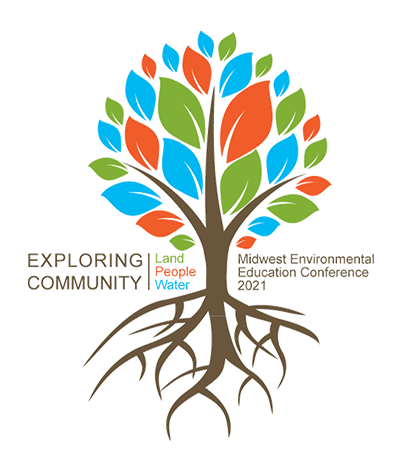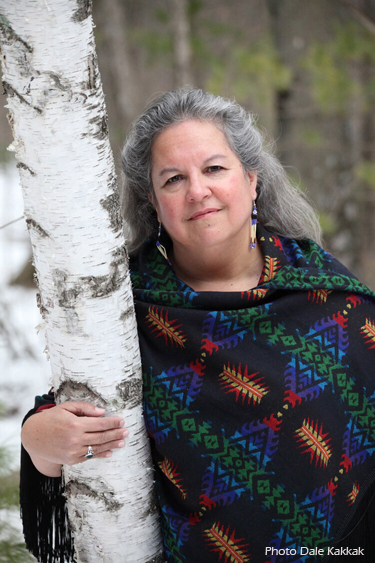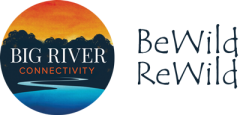Sponsorship of keynote speaker Robin Wall Kimmerer
Summary of event:


The Midwest Environment Education Conference (MEEC) is being held at Luther College in Decorah, Iowa July 26-29, 2021, with a backup plan to move to a virtual format if needed.
The theme is “Exploring Community: Land, Water, People” and will feature keynote speaker Robin Wall Kimmerer, author of Braiding Sweetgrass. The conference keynote and sessions will focus on the ideas of re-defining community to include all land, water, and people, and building healthy, resilient, vibrant communities for all.
The ask:
Iowa Conservation Education Coalition, the hosts of MEEC, request $5000 in funding from BeWildReWild to sponsor the keynote speaker. This grant will keep registration costs down and allow us to explore offering Robin Wall Kimmerer’s keynote address for free to an audience even beyond conference attendees.
Statement of support:
Iowa Natural Heritage Foundation, holder of the BeWildReWild Fund, supports this conference sponsorship as a way to expose those on the front lines of environmental education with children and adults across the Midwest to the profound wisdom of Robin Wall Kimmerer.
“In the Western tradition there is a recognized hierarchy of beings, with, of course, the human being on top—the pinnacle of evolution, the darling of Creation—and the plants at the bottom. But in Native ways of knowing, human people are often referred to as “the younger brothers of Creation.” We say that humans have the least experience with how to live and thus the most to learn—we must look to our teachers among the other species for guidance. Their wisdom is apparent in the way that they live. They teach us by example. They’ve been on the earth far longer than we have been, and have had time to figure things out.”
― Robin Wall Kimmerer, Braiding Sweetgrass: Indigenous Wisdom, Scientific Knowledge, and the Teachings of Plants
The questions, answered through the lens of the conference goals:
What do you mean by wild?
Definitions, labels, and names are not static. Meanings shift over time, phrasing fades in and out of fashion, and two people can simultaneously use the same words to mean two completely different things. Our work in support of conversation and environmental education necessitates that we consider language carefully. What words or phrases push people away and turn them off from our message? What might create unintentional barriers to connecting with other people or natural areas?
A case in point, already: What is a “natural area”? What does it mean to be “natural”? Is a vegetable garden “un-natural”—and less worthy of being included in environmental education—because it is laid out in neat rows or done with intent of producing food? Of course not. We know that the practice of gardening can be incredibly foundational to a person’s sense of connection to the outdoors.
At times, environmental education centers on the idea of connecting people to the wild: wild places, wild animals, wild concepts. As environmental educators, we should consider if “wild” is always the goal, especially when we acknowledge that the concept of wild as “untouched” can erase the human realities that have always existed in a place.
But, the sentiment that comes from the idea of “wild” does and should remain a fundamental goal in environmental education: fostering in others the sense you get when you connect to something outside of yourself, something amazing, something that existed before and will exist after you, no matter what word you use for it.
What changes are needed for us to live within the bounds of sustainability?
Humans, by and large, care about our communities. We often act for the success and well-being of those communities, even if we as individuals don’t personally benefit. We bring food to ill neighbors (even if it means giving of our own food), support a friend’s small business (even if it means paying a little more), and plant trees (even if we won’t live long enough to see them to maturity). We act this way out of a sense of responsibility, reciprocity, and love.
But how we define “community”—who and what are included as members—dictates how those feelings of responsibility and reciprocity are enacted, how wide the ripples of that love spread. If someone or something is excluded from a community—if the ripples don’t wash over them—the consequences can be devastating.
Many of the crises we face, as humans and as a planet, ultimately stem from a failure to recognize that a community’s circle does not end when and where we (meaning humans in power) find it convenient. When we don’t acknowledge the deep, interconnected systems that bind us all together, we can’t understand that cracks in a system—even the seemingly small ones—cause strain, leading to more cracks, perhaps collapse. But, if we allow the ripples of our “community” to spread to include all land, water, and people, we can find ways to heal those cracks and strengthen the system.
Of course, this idea is not new. Many others have expressed the same sentiment in ways far more beautiful and complete. We can only truly live within the bounds of sustainability when that message, in its many forms, is fully brought to life and the circle of our community ripples outward, filled with responsibility, reciprocity, and love.
How can we create a wilder, more beautiful, more biologically diverse, and a more enduring Mississippi watershed?
An important first step will be creating space for a diverse and broad range of voices and perspectives—especially from those who have historically been marginalized and excluded—to define what a wilder, more beautiful, more enduring watershed actually looks like; to explain why that vision has not or is not being realized; and to lay out the solutions. Supporting those voices will involve listening, possibly letting go of long-held notions, and perhaps even intentionally stepping back so others can step forward.
It will involve educating and motivating others; purposeful and sometimes hard conversations; and detailed policies, strategies, and plans of all scales, scopes, and landscapes. In other words, it will take a lot of work, a lot of time, and a lot of energy. There will be disappointments and celebrations, steps backwards and forwards, and continual change and adjustments. There won’t (can’t) ever be a perfect Mississippi watershed, but we can make progress toward a better, wider Mississippi watershed community.
Please note, these are not the words, thoughts, or ideas of Robin Wall Kimmerer, but are from the planning committee of the 2021 Midwest Environmental Education Conference, which is made up of educators and individuals from across Iowa who care about our natural resources and conservation education.
Lilly Jensen
Education and Outreach Coordinator
Winneshiek County Conservation
2546 Lake Meyer Road
Fort Atkinson, Iowa 52144
www.winneshiekwild.com
(563) 534-7145
Abby Hade Terpstra
Donor Relations Director
Iowa Natural Heritage Foundation
505 5th Ave, Ste 444
Des Moines, Iowa 50309
www.INHF.org
(515) 288-1846
